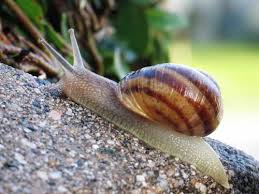mollusc
英 [ˈmɒl.əsk]
美 [ˈmɑː.ləsk]
- n. 软体动物
星级词汇:

中文词源
mollusc 软体动物门
来自拉丁语mollis,软的,词源同melt,-isc,形容词后缀,即-ish.瑞典生物学家林奈借用该拉丁词指软体动物门,如贝类。
英语词源
- mollusc
-
mollusc: [18] Etymologically, a mollusc is a ‘soft’ creature. The word comes ultimately from Latin molluscus ‘soft’, a derivative of mollis ‘soft’. In classical times it was used as a noun for various ‘soft’ things, such as a sort of thinshelled nut and a species of fungus that grew from maple trees, but its application to a range of invertebrate animals seems to have been introduced by the Swedish naturalist Linnaeus in the mid-18th century.
Latin mollis (source also of English mollify [15]) goes back ultimately to Indo-European *mel-, *mol-, *ml- ‘grind’, which also produced English meal ‘flour’, mill, and molar.
=> meal, melt, mild, mill, molar, mollify - mollusc (n.)
- see mollusk.
权威例句
- 1. There are two types of mollusc that are actively venomous.
- 有两种随时释放毒素的软体动物.
- 2. The mollusc phylum includes all soft - bodied animals without backbones.
- 软体动物门包括所有无脊椎的软体动物.
- 3. Embankment shell variety, mostly for the intertidal zone or shallow seabed sediment mollusc species present health.
- 堤上贝壳种类丰富, 多为潮间带或浅海泥沙海底软体动物的现生种属.
